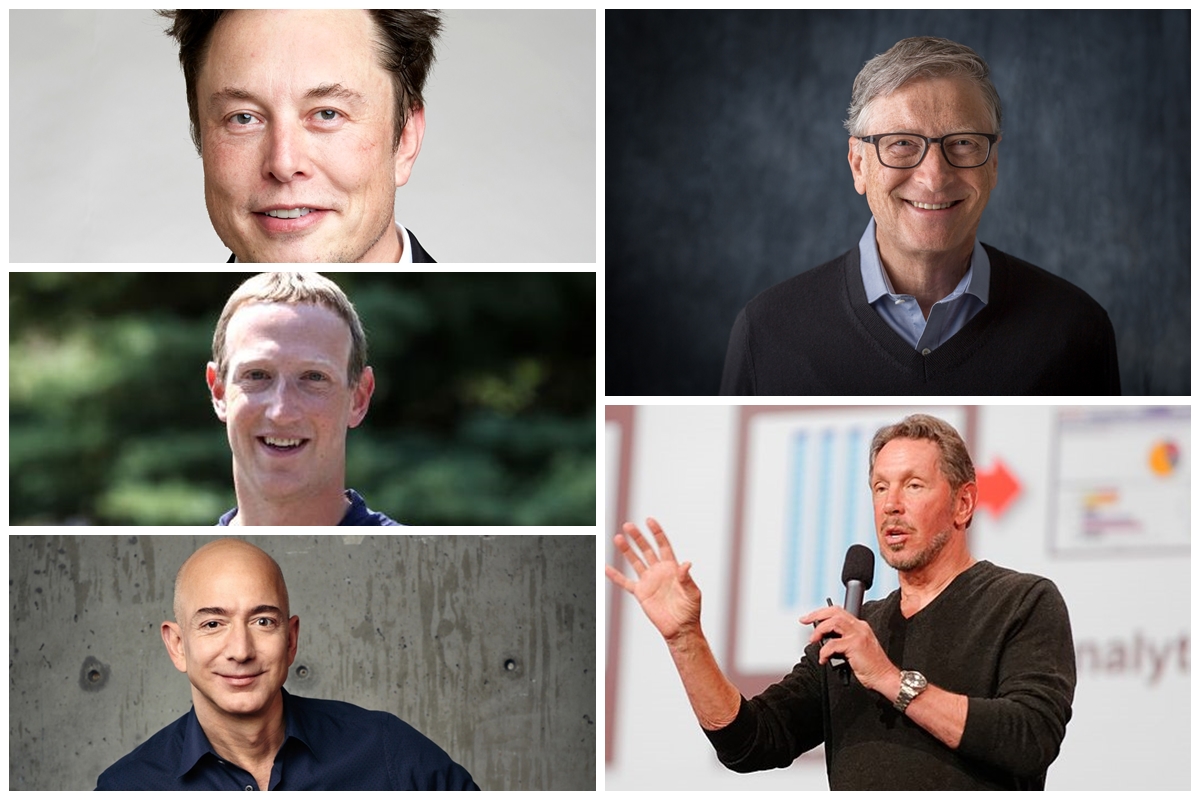Elon Musk visits China, likely to promote Tesla’s driverless tech: Report
Tesla CEO Elon Musk has made an "unannounced and surprising" visit to Beijing, according to a media report on Sunday.
Discover the educational journeys of the world’s richest minds, from Elon Musk to Bill Gates, and how their paths shaped their achievements.

Some of world's most known billionaires
Ever wondered what educational paths some of the world’s richest people took? Let’s take a fascinating glimpse into the academic journeys of some of these individuals.
Elon Musk, the entrepreneur behind Tesla and SpaceX, had an eventful educational journey. After briefly attending the University of Pretoria in South Africa, he headed to Canada at the age of 18. Obtaining citizenship through his Canadian-born mother, Musk matriculated at Queen’s University in Kingston, Ontario. However, his quest for knowledge led him to transfer to the University of Pennsylvania, where he earned bachelor’s degrees in both economics and physics. He later moved to California, aiming to attend Stanford University. However, fate had other plans, and after just two days, Musk decided to drop out, paving the way for his incredible entrepreneurial journey.
Mark Zuckerberg, the mind behind Facebook, had already earned a reputation as a programming prodigy even before he started his classes at Harvard in 2002. While studying psychology and computer science, his passion for innovation and social connections inspired him to create what would become the world’s largest social media platform. Zuckerberg’s drive to turn his dream into reality led him to drop out of college during his sophomore year. Despite leaving academia, he always credited his study skills for contributing to his day-to-day work. In a heartwarming twist, he received an honorary degree from Harvard University in 2017, marking a full-circle moment in his journey.
Advertisement
Jeff Bezos, the mastermind behind Amazon, holds a degree in electrical engineering and computer science from Princeton University. Graduating in 1986, Bezos had a bright future ahead of him, with offers from reputable companies like Intel and Bell Labs. However, his determination to make a difference in the world led him to join a startup called Fitel instead. An avid reader and a gifted student, Bezos possessed the ability to master any subject he set his mind to, ultimately setting the stage for his groundbreaking ventures in the world of e-commerce and technology.
Bill Gates, the co-founder of Microsoft and a pioneer in the tech industry, displayed exceptional intellectual prowess early on. Scoring an impressive 1590 out of 1600 on the Scholastic Aptitude Tests (SAT), Gates embarked on his academic journey at Harvard College in 1973. Although he initially chose a pre-law major, his passion for mathematics and computer science led him to take advanced courses in these fields. It was during his time at Harvard that Gates crossed paths with another bright mind, Steve Ballmer. Despite leaving Harvard after two years to pursue his entrepreneurial dreams, Gates’ brilliance and dedication to innovation would change the world forever.
Larry Ellison, the co-founder of Oracle Corporation, had an eventful academic life as well. After attending South Shore High School in Chicago, Ellison was admitted to the University of Illinois at Urbana-Champaign as a premed student. His brilliance shone brightly, and he was named the science student of the year. However, a personal tragedy struck when his adoptive mother passed away, leading him to withdraw without taking final exams after his sophomore year. Seeking new experiences, he spent the summer of 1966 in California and then briefly attended the University of Chicago, where he explored physics and mathematics, while also being introduced to the world of computer design.
Advertisement